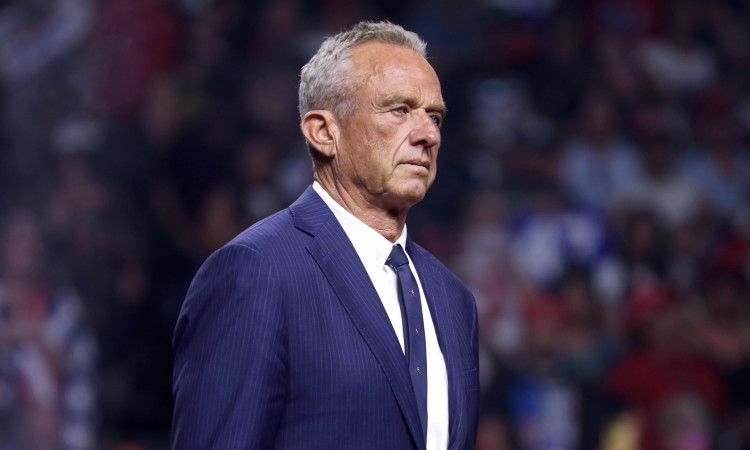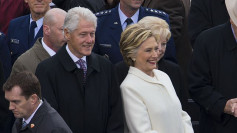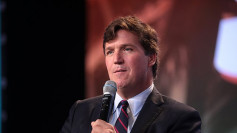Health and Human Services Secretary Robert F. Kennedy Jr. appeared before Congress on Wednesday to defend the Trump administration's sweeping overhaul of the department, including the elimination of 10,000 positions and deep budget cuts, while fielding sharp criticism over his controversial vaccine views and response to the growing measles outbreak.
Kennedy testified before the House Appropriations Committee in the morning and was scheduled to appear before the Senate Health, Education, Labor, and Pensions (HELP) Committee later in the day. It marked his first congressional testimony since his contentious confirmation in February, which nearly failed over concerns about his past remarks questioning vaccine safety.
The administration's proposed 2026 budget includes a $3.6 billion reduction for the Centers for Disease Control and Prevention and an $18 billion cut to the National Institutes of Health. "We intend to do more, a lot more with less," Kennedy said. "The budget I'm presenting today supports these goals and reflects two enduring American values, compassion and responsibility."
Rep. Rosa DeLauro (D., Conn.), ranking member of the Appropriations Committee, condemned the cuts. "You are gutting the life-saving work of the Department of Health and Human Services and its key agencies," DeLauro said. "Because of these cuts, people will die."
Since April, HHS has laid off approximately 10,000 employees and consolidated 28 institutes and centers into 15 divisions. With early retirements and deferred resignations, total staffing is projected to fall from 82,000 to 62,000. Critics say the layoffs have impacted key public health roles, including tobacco regulation, black lung diagnosis, and lead exposure monitoring.
Kennedy defended his department's response to the measles outbreak, which has infected over 1,000 Americans and caused three deaths. "We are doing a better job at CDC today than any nation in the world controlling this measles outbreak," Kennedy said.
DeLauro pushed back. "If you compare us to western Europe countries that we often compare ourselves to, like Great Britain, they have seen no measles death," she said.
Kennedy's public messaging on vaccines has drawn further scrutiny. On April 6, he posted on X that the best way to stop the spread of measles is through MMR vaccination. Hours later, he posted that over 300 children were treated with antibiotics and steroids-neither of which are recognized treatments for the virus.
Asked by Rep. Mark Pocan (D., Wis.) if he would vaccinate his own children against measles, chickenpox, or polio, Kennedy declined. "My opinions about vaccines are irrelevant," he said. Pocan responded, "But that's kind of your jurisdiction, because CDC does give advice, right?"
During his confirmation, Kennedy stated he supports vaccines but refused to say unequivocally that they do not cause autism, despite overwhelming scientific evidence to the contrary. In March, HHS announced the CDC would study a potential link between vaccines and autism, a move critics say risks legitimizing a long-debunked theory.
Kennedy's credibility was further tested when he appeared unaware of some of the specific HHS cuts during a CBS News interview last month, saying he was "not familiar" with several line items cited.
Sen. Bill Cassidy (R., La.), a physician and chair of the HELP Committee, had conditioned his support for Kennedy's confirmation on assurances that vaccine policy would not be changed without "ironclad" scientific evidence. Cassidy's prepared remarks for the Senate hearing criticized Kennedy's rollout. "People instinctively fear change, even when it's from worse to better. But without a clearly defined plan or objective, people will assume the worst," Cassidy wrote.
Kennedy also faced bipartisan concern over his plan to reconsider federal fluoride guidelines. Rep. Mike Simpson (R., Idaho), a dentist, questioned Kennedy's comments about ending fluoride recommendations. "I want to see the studies on this and where we're headed with this," Simpson said. "You don't prevent cavities by fluoride killing the bacteria in the mouth... makes the enamel more resistant to decay."
Kennedy's suggestion that fluoride harms children's neurological development contradicts decades of public health research. The FDA is reviewing fluoride supplements with an eye toward potentially removing them from the market later this year.
Adding to the controversy, Kennedy came under fire this week after posting photos of himself swimming in Washington's Rock Creek, which the National Park Service warns is unsafe due to high bacterial levels. The posts sparked criticism amid broader questions about Kennedy's judgment and priorities as he oversees one of the nation's largest federal agencies.





